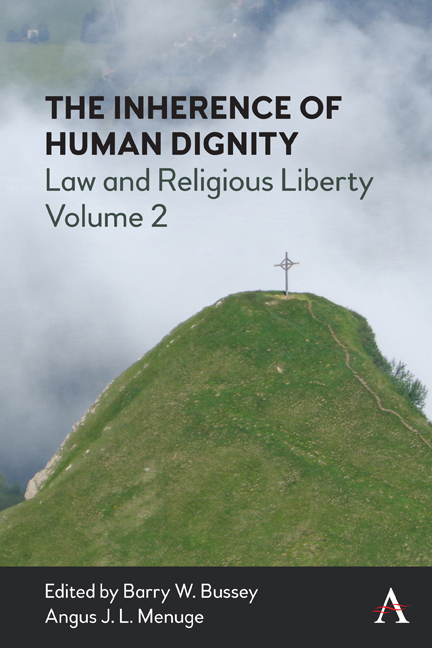Chapter Thirteen - Respecting The Dignity Of Religious Organizations: When Is It Appropriate For Courts To Decide Religious Doctrine?
Published online by Cambridge University Press: 24 February 2022
Summary
Introduction
It is not uncommon to find wide-ranging statements along the lines that ‘courts do not determine religious doctrine’ (Hale 2015, 179; Kumar v. Satsang 2019, para 21; Shergill v. Khaira 2015, para 45: ‘the courts do not adjudicate on the truth of religious beliefs or on the validity of particular rites’). But there are other cases where the court finds itself bound to determine at least some religious issues. Are the courts simply being inconsistent? Or is there a rational and workable distinction between cases where religious beliefs ought not to be the subject of ‘secular’ judicial rulings, and those where the courts have to offer their interpretations of doctrine? The aim of this chapter is to demonstrate that the latter is true and to provide a clearer understanding of the difference between these two situations.
These issues matter for many reasons, including the fundamental idea of human dignity. A basic aspect of the protection of human dignity is respect for the fundamental religious beliefs that may underlie human actions. Freedom of religion is protected in crucial international agreements and is a basic part of the presuppositions of Western societies. A key feature of religious freedom, however, is that it protects not only the rights of an individual in their own autonomy, but also the rights of groups of persons who join together to live out their shared religious commitments. Article 18(1) of the 1966 International Covenant on Civil and Political Rights (ICCPR), for example, refers to the right ‘either individually or in community with others and in public or private, to manifest his religion or belief in worship, observance, practice and teaching’ (emphasis added).
Part of the respect that should be offered to a religious group, then, is that it be left to order its life in accordance with its own understanding of the religious doctrines that shape its existence. Of course, there are some circumstances where the living out of those doctrines may need to be controlled in the interests of the fundamental rights of members of the group or members of the public where a religious group, for example, inflicts physical or sexual abuse on children or other vulnerable persons. There are wellrecognised limits to religious freedom.
- Type
- Chapter
- Information
- The Inherence of Human DignityLaw and Religious Liberty, Volume 2, pp. 221 - 248Publisher: Anthem PressPrint publication year: 2021



